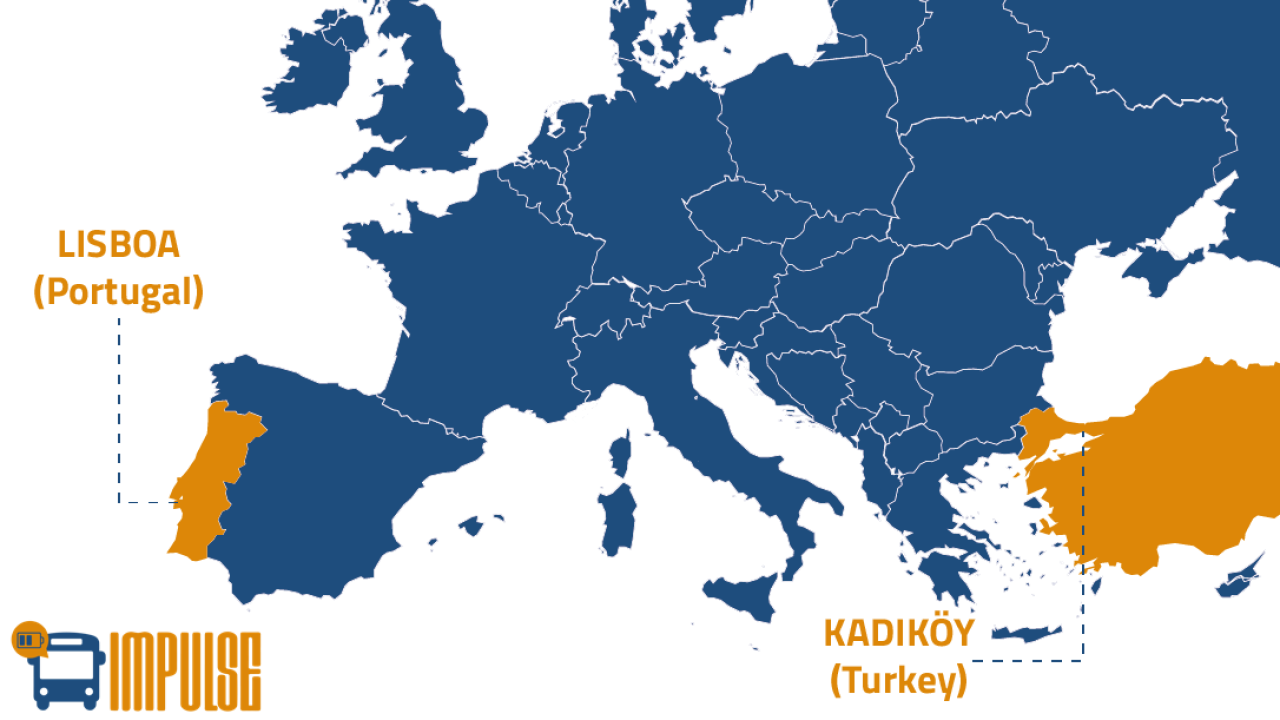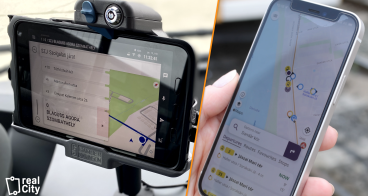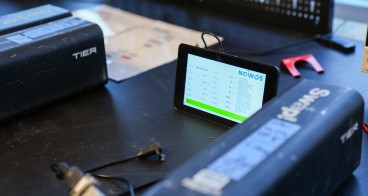Improving e-bus operational efficiency in Lisbon and Istanbul
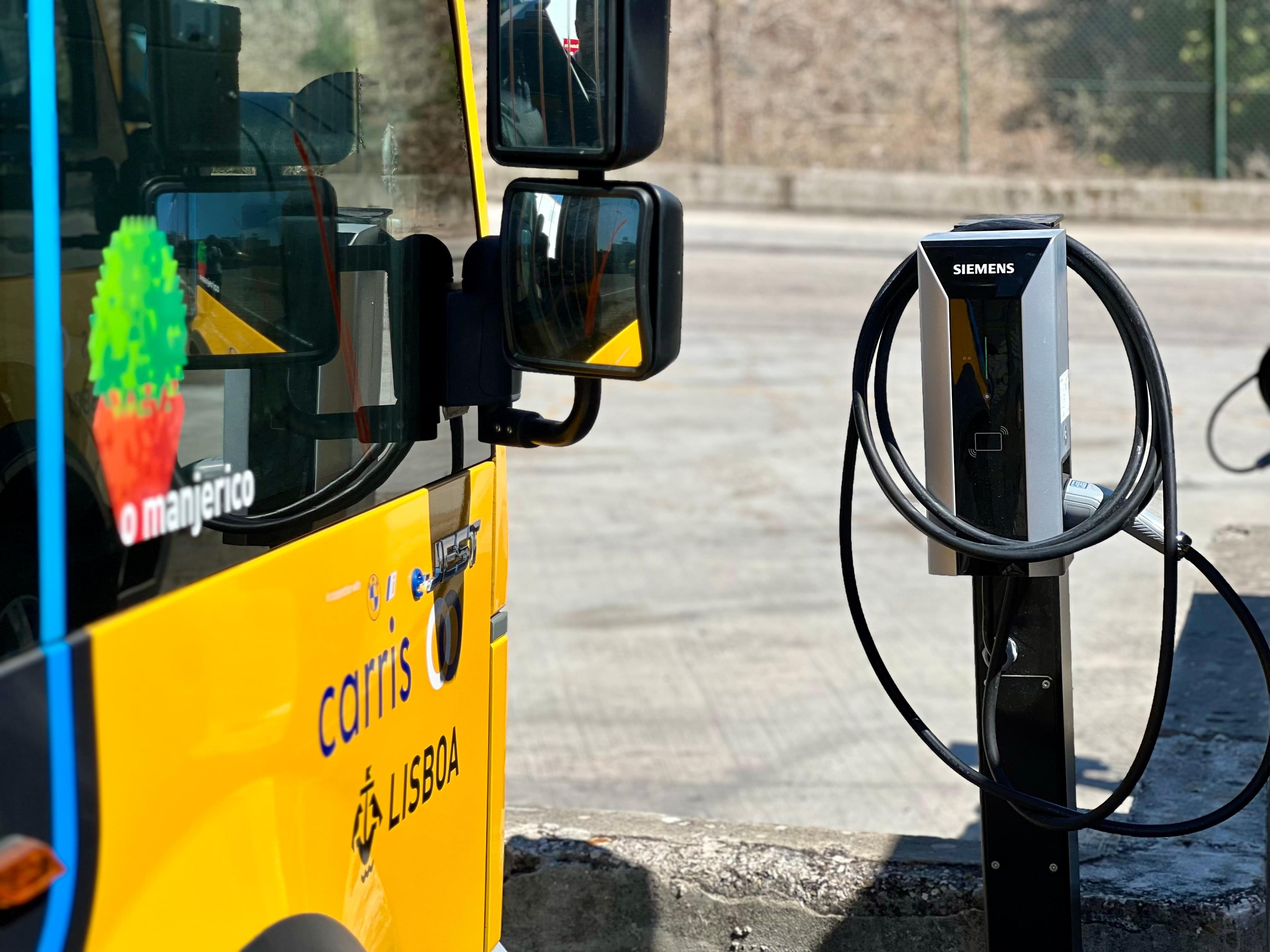
The Challenge
Ensuring a stable and reliable transport service with e-buses remains a challenge for Public Transport Operators (PTOs) due to the complexity of managing growing electric bus fleets, which leads to operational inefficiencies.
In Lisbon, PTO Carris faced issues such as limited battery life, insufficient charging infrastructure, and a lack of real-time data integration, resulting in service interruptions and increased operational costs. Their plan to expand the fleet from 15 to 59 e-buses underscored the need for a data-driven approach to fleet optimisation.
Meanwhile, in the Istanbul (Kadiköy) pilot case, the challenge was related to a small fleet of electric minibuses provided by Princes’ Islands PTO, operating without a telemetry system. The absence of real-time monitoring and comprehensive understanding of battery usage patterns across the route can complicate route planning and charging operations management, especially in case of fleet expansion, increasing the risk of unexpected service failures. Additionally, limited overnight charging capacity at depots required an efficient scheduling system.
The Solution
The IMPULSE project tackled the challenges of e-bus fleet management by developing an advanced software platform that integrates real-time battery monitoring, predictive analytics, and optimised fleet operations. This solution enhances service reliability, reduces operational costs, and minimises environmental impact.
Developed by realCity ITS, the platform processes real-time data on battery status, vehicle locations, charging station availability, planned routes, and transport network conditions. Using this data, public transport operators can optimise daily charging strategies and vehicle deployment.
It includes three key modules:
- realCity | dispatch – A web-based fleet management tool that allows dispatchers to monitor vehicle status, adjust schedules in real time, and receive alerts if battery levels drop below expected thresholds. The system dynamically updates route predictions based on dispatcher interventions.
- realCity | replay – An analytical tool for comparing planned versus actual trips, visualising battery consumption trends, and generating reports on energy efficiency. This module also powers the predictive engine for battery performance optimisation.
- realCity | drive – An Android-based onboard system that integrates public transport vehicles into a real-time monitoring network. It enables vehicle tracking, live data input from drivers, and battery status updates, even in the absence of telemetry systems.
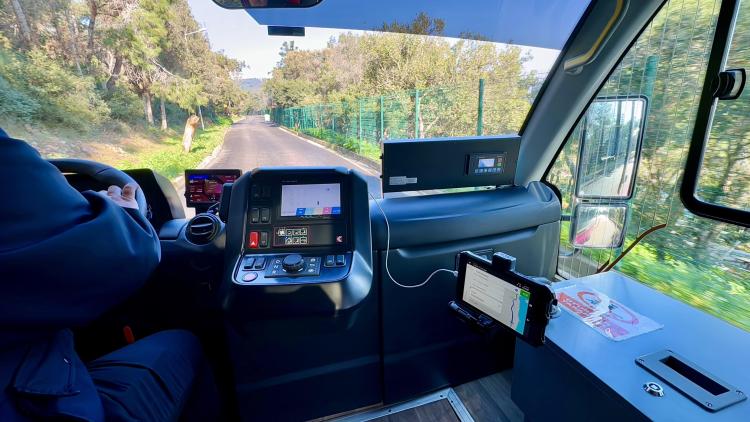
Making an impact
The IMPULSE project has generated significant social, ecological, and economic impacts by improving electric bus (e-bus) fleet management in Lisbon and Istanbul.
In Lisbon, the platform helped reduce e-bus service interruptions by 24%, ensuring more reliable public transport. Lost-kilometers decreased by 30%, enhancing operational efficiency. The implementation supported Carris' fleet expansion from 15 to 59 e-buses (+293%), reducing 3,200 tons of CO₂ emissions annually, aligning with the city’s sustainable mobility goals.
In Istanbul, the pilot demonstrated that effective fleet management is achievable even without a real-time telemetry system, proving the technical and economic feasibility of setting up the system and platform quickly with minimal adaptations to pre-existing modules. This facilitates adoption for small fleets or those lacking advanced technological systems for data collection.
According to Carris, "IMPULSE has been a game-changer for our fleet electrification strategy. The platform’s predictive capabilities give us confidence in managing e-buses efficiently, reducing disruptions and costs while supporting our commitment to sustainable mobility." (João Vieira, Directorate of Strategy, Innovation, and Environment at Carris)
These results confirm that IMPULSE provides a scalable, adaptable solution for cities transitioning to electric public transport, optimising fleet management while reducing environmental impact.
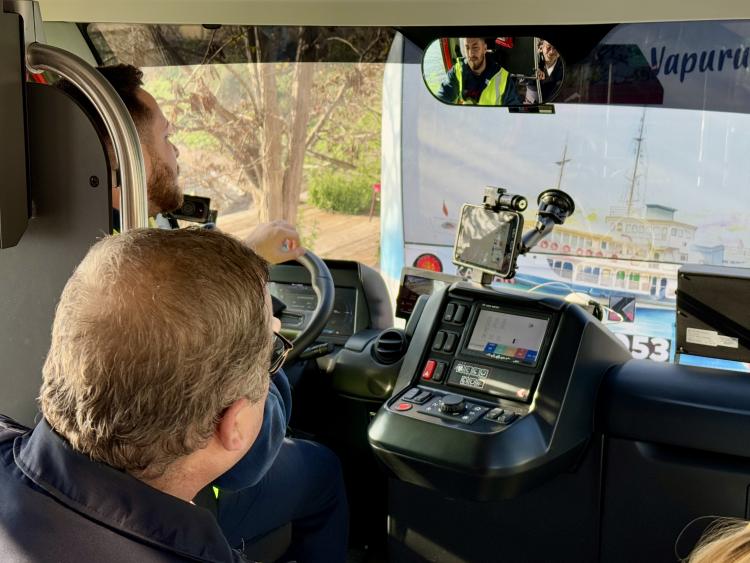
Lessons learnt
Data Availability & Quality Issues – One of the major challenges was ensuring that data collected from various sources was accurate, complete, and consistently formatted. In some cases, missing or inconsistent data led to delays in processing and decision-making. To mitigate this, automated data validation processes were implemented, which helped identify and correct errors before they impacted operations. Future deployments would benefit from establishing standardised data-sharing agreements with stakeholders upfront to minimise inconsistencies.
Ensuring System Performance & Reliability – During early testing phases, the technical partners encountered unexpected performance bottlenecks due to high data processing demands and system load fluctuations. These issues could have impacted the overall reliability of the solution if not addressed. To improve performance, they optimised database queries, implemented load-balancing strategies, and prioritised critical tasks in data processing workflows. These optimisations ensured that the system remained stable under peak loads and maintained high availability.
On-Board Unit Installation & Usability - Installing the on-board unit required careful placement to keep it within reach without obstructing the driver’s view while ensuring access to charging ports. Integration with existing dashboard data, such as energy consumption metrics, varied across vehicle models, requiring adjustments to avoid redundancy.



